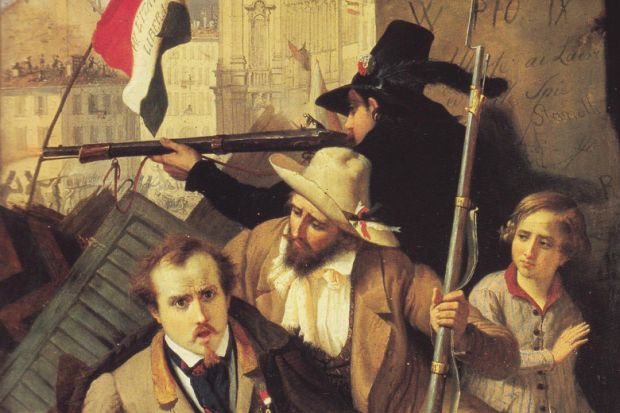Historians seeking to make an impact on public policy should not try to influence ministers directly but rather “write a bloody brilliant book which sets the intellectual debate”.
That was the advice given by Tristram Hunt, the Labour MP, former shadow minister and lecturer in modern British history at Queen Mary University of London (QMUL) at an event on early career historians “engaging publics” and “influencing policy”.
Dr Hunt told “History beyond the Academy”, organised by the Mile End Institute at QMUL and held at the British Academy, that now was “a very welcoming time” for those who wanted to become public historians, pointing to the way that they had helped to shape the debate during the Scottish referendum and on “austerity”, and how they had employed the 1848 “spring of nations” as “a frame for understanding the complex and seemingly unrelated events” of “the Arab Spring”.
For young historians hoping to make a public mark, Dr Hunt had a number of suggestions in addition to writing books. “Secure your academic credentials – your brand strength as a public historian depends on that – and then range more widely from a secure base.” He added: “Show you love your subject” but “make it germane and relevant to contemporaneous debates”.
His talk was followed by a round-table debate on “Does good policymaking need historians?”
Peter Hennessy, Attlee professor of contemporary British history at QMUL, suggested that historians “face a bit of a struggle to sell our wares” to politicians “even when we have a scholar in No 10” such as the “genuinely intellectual” and historically aware Harold Macmillan.
Sir David Cannadine, Dodge professor of history at Princeton University, described his “two adventures in the corridors of power”.
One was on the committee to examine whether there was a case for relaxing the 30-year rule for the release of public documents. The other was a project funded by the Linbury Trust that looked at the reasons why many pupils left school with an inadequate knowledge of history; it concluded that the problem was not the curriculum but rather the fact that history was compulsory only up to the age of 14.
Both, claimed Sir David, were “based on a huge amount of archival research” and “aimed to provide perspective and proportion”. But while proposals about reducing the 30-year rule were accepted, “[former education secretary] Michael Gove did the exact opposite of what an overwhelming body of evidence suggested” and decided to reform the curriculum while refusing to make history compulsory beyond 14.
“We failed due to a lack of political clout,” Sir David concluded. “Historians as a tribe are hopeless at engaging with policy – the challenge for the new generation is to do much better.”
Margaret Macmillan, warden of St Antony’s College, Oxford, noted that “we need to understand history as citizens because it is going to be used and misused…Historically ill-informed policymakers often choose the wrong history”, for example, by always treating the Second World War as “the paradigmatic war” with lessons for today.
“The military are often more willing to listen to historians than politicians”, added Professor Macmillan, “because the stakes are so high.”
Register to continue
Why register?
- Registration is free and only takes a moment
- Once registered, you can read 3 articles a month
- Sign up for our newsletter
Subscribe
Or subscribe for unlimited access to:
- Unlimited access to news, views, insights & reviews
- Digital editions
- Digital access to THE’s university and college rankings analysis
Already registered or a current subscriber?










